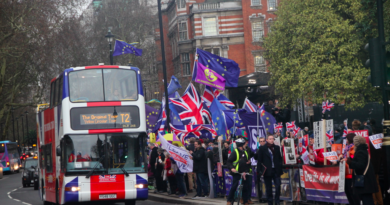Spain, UK to sign bilateral agreement on voting rights of residents
Spain will sign a bilateral agreement with the United Kingdom allowing Britons in the country and Spaniards in the UK to continue voting and standing as candidates in municipal elections. The Spanish government made the announcement on January 11 after discussing contingency plans on the UK departure from the European Union.
Voting rights in municipal elections are granted to all EU nationals who live in another country of the European Union. But they have not been included in the draft Brexit deal, which preserves in many other areas the status of British nationals in the EU and EU nationals in the UK after Brexit. This is because political rights derive from EU citizenship, that British nationals will lose when the UK leaves the EU.
Some EU countries, for example Sweden, guarantee participation in local elections to long-term residents regardless of their nationality. But most other EU countries do not.
The British government said it intended to negotiate the issue bilaterally with EU member states, and the deal with Spain would be the first one to be signed.
The agreement will have to be ratified by the Spanish and British parliaments, so it might not be ready for the elections of 26 May 2019. But the two countries will provisionally enforce it to allow people to vote. The Comunidad Valenciana, where one of the largest British communities live, is among the areas that will elect new leaders in May.
Some 293,000 UK nationals live in Spain, according to the EU statistical office Eurostat. They represent the largest group of British residents in EU countries.
The British government promised that EU nationals will maintain voting rights in May 2019 local elections, but it did not specify what will happen after that date. The 170,000 Spanish citizens in the UK now know that their voting rights will be protected.
Spain to “globally” preserve rights of Brits
The Spanish government also announced it is making plans for the event of a no deal Brexit. The intention is to “globally” preserve the rights of British citizens in Spain, “considering that they have made vital decisions believing in the European project,” says a government statement.
The plan is to establish a system allowing them to transition from the current to a future legal status. There will also be measures to guarantee social security rights, healthcare and the recognition of professional qualifications for both British nationals in Spain and Spaniards in the UK.
Contingency measures will also concern the territory of Gibraltar and will cover the rights of people who work across the border, including pensions and other social security benefits.
The government will approve a decree to cover all these areas in February. Meanwhile, a web page will be launched to inform individuals and companies on how to prepare for different Brexit scenarios.
In December, civil rights groups EuroCitizens and British in Europe presented a report explaining the impacts of no deal on the British community. Michael Harris, president of EuroCitizens, urged the government to take action. “To end the current uncertainty, the British need to know as soon as possible what are those contingency plans. The most urgent thing is a transitory period to avoid that we become undocumented, with all that that entails,” he said.
“The government sends a very clear message of calm and certainty, because it is prepared for all scenarios, whether the UK withdraws with an agreement, which would be much more desirable, or without an agreement,” said government spokesperson Isabel Celaá announcing new measures last Friday.
In the traditional end-of-year press conference, Spanish Prime Minister Pedro Sanchez promised that the rights of British residents will not change, even in the event of no-deal Brexit, as long as the UK reciprocates with EU nationals in Britain.
Claudia Delpero © all rights reserved.
Update: the UK and Spanish governments have signed a treaty that secures the rights of British and Spanish citizens to stand and vote in local elections in each other’s countries on January 21, 2019.
Photo via Pixabay.




